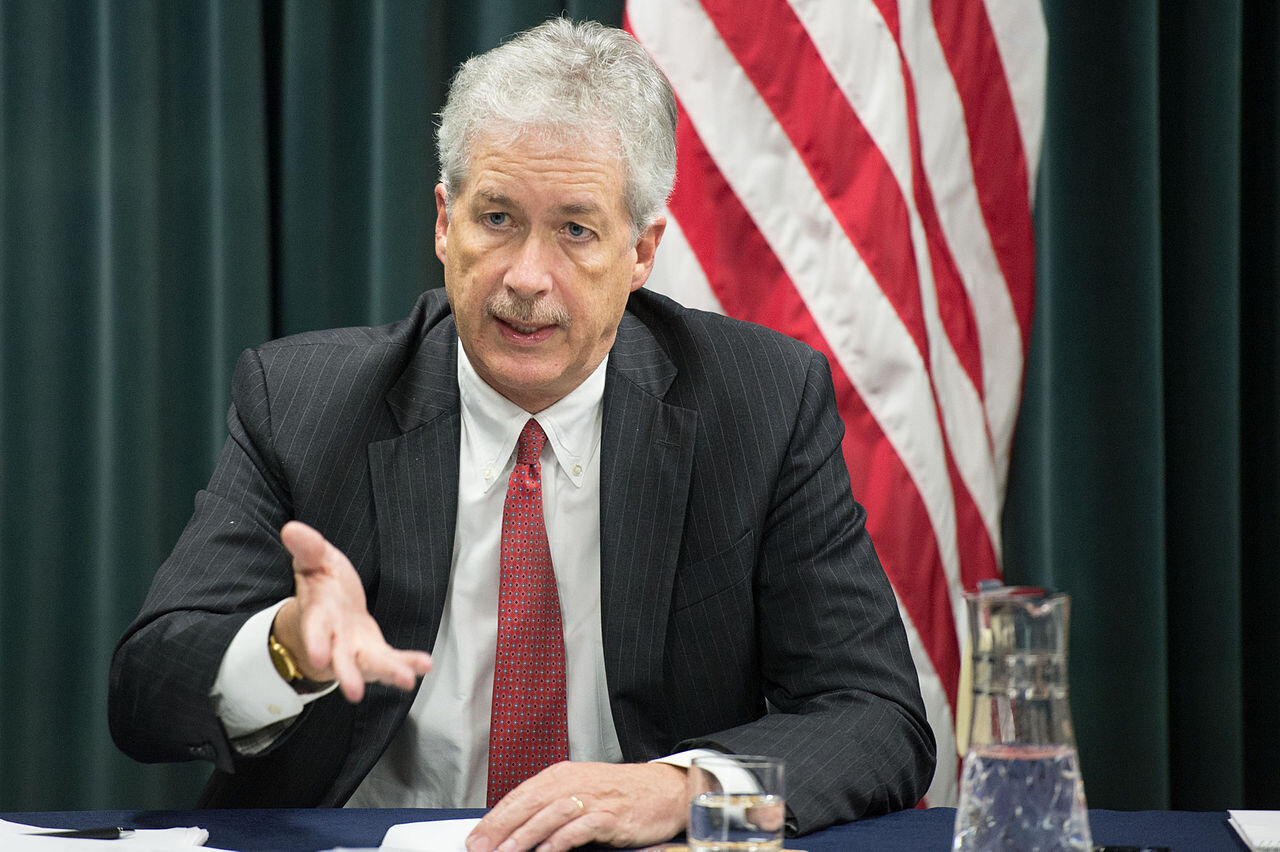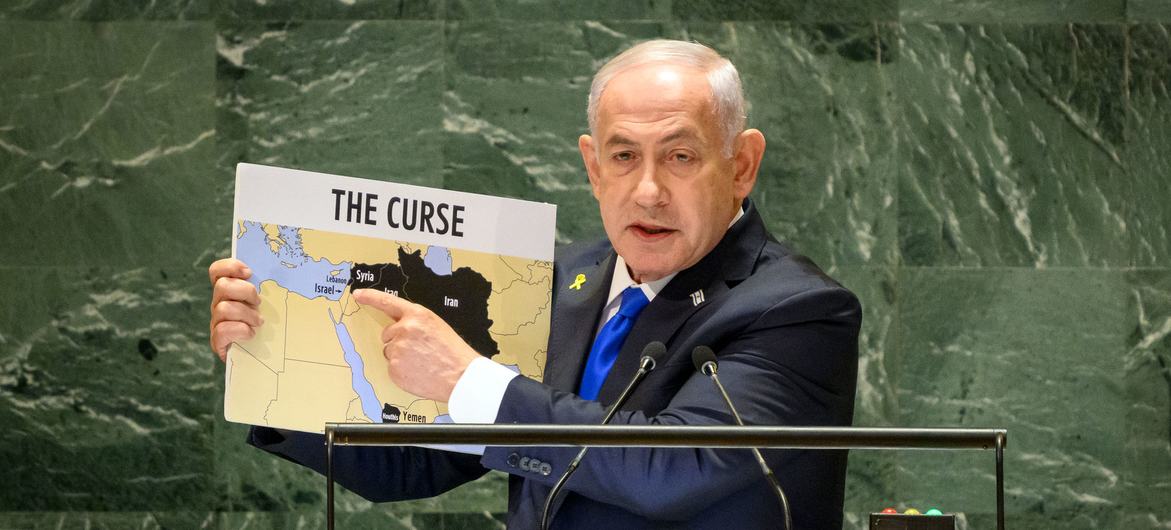PICTURED: William Joseph Burns, the new CIA Director, in 2014.
As President-elect Joe Biden continues to appoint his cabinet members, his recurring penchant for war criminals and other orchestrators of America’s aggressive and deadly 20-year foreign policy stopped short at the door of Director of the Central Intelligence Agency.
His choice, William Burns, is one of America’s top diplomats, and one which spent a 33-year career in the foreign service attempting to save lives, rather than end them.
For both parties seeking a less-politicized intelligence service, and parties seeking a more diplomacy-based foreign policy, Burns, who was a key and sometimes covert negotiator with Iran on the 2015 Joint Comprehensive Plan of Action (JCPOA), is seen as a great sign.
“Bill Burns is an exemplary diplomat with decades of experience on the word stage keeping our people and our country safe and secure,” said Biden of the appointment. “He shares my profound belief that intelligence must be apolitical and that the dedicated intelligence professionals serving our nation deserve our gratitude and respect”.
Throughout his career Burns has served as Ambassador to Jordan, Ambassador to the Russian Federation, and as both a Deputy Secretary and Undersecretary of State.
PICTURED: Avril Haines, Joe Biden’s nomination for Director of National Intelligence. If confirmed, the two will be in close contact throughout their tenures.
Friends and Enemies
The term “foil,” often used to describe a good partner, could not be used to describe Burns who will head one of the most important intelligence services, and the Director of National Intelligence Avril Haines, the highest spy-related position in the country.
The former, as demonstrated by the State Department Cables from Wikileaks, worked both to try and alleviate and help address Russian fears of NATO expansion. The former codified the legal procedure for extrajudicial assassination by drone committed by the Obama Administration.
In 2013, he flew in an unmarked plane to Oman, where the secretly and cordially led Iran through series of negotiations which resulted in the JCPOA.
In her 2013-15 tenure as Deputy CIA Director, Haines outlined the “accountability board” that ensured zero reprisal for any CIA personnel found guilty of spying on the Senate during their torture investigations.
The unlikely pair will have a lot of interactions over the coming years, and who’s policy choices ring loudest in Biden’s ears will be key to America’s position in several regions during his Administration.
What analysts are saying
John Kiriakou, a former CIA counterterrorism officer and torture program whistleblower, has hopes that Burns will “clean up the agency”.
“If there must be a CIA, I feel better with Bill Burns being in charge of it,” writes Kiriakou, who spent 23 months in prison (the only CIA employee to date) for the torture program after Obama indicted him under the Espionage Act.
Kiriakou stresses that the challenge is to separate the analysts from the operators, while attempting to use agency higher-ups who agree with a diplomatic approach to intelligence to try and make reforms that will be resisted by the more hawkish spectrum of senior members.
“The organization will be led by someone with experience engaging across a negotiating table with America’s enemies, someone experienced in solving problems, rather than creating new ones, someone who has dedicated much of his career to promoting peace, rather than to creating war,” he writes.
Another former CIA insider who has hopes for Burns is Ray McGovern, who as an analyst headed the Soviet Foreign Policy Branch, prepared/briefed The President’s Daily Brief for three different presidents, and worked under nine CIA directors.
McGovern is hopeful, but a long career has made him skeptical. Writing for Robert Parry’s Consortium News, McGovern notes that “as the agency’s operational side accumulates more and more funding and is more and more drawn into paramilitary operations, drone targeting and the like, Burns faces a formidable challenge to gain control of it”.
As an expert in all things Russ, McGovern references the 2008 State Department Cables during the Obama-era coup d’état in Ukraine, when Burns was serving as Ambassador to Russia, in which he attempts to warn officials that NATO expansion into Ukraine could result in military intervention and possibly a civil war between the Russo-oriented Donbass region, and the Euro-oriented west, during a meeting with then-Foreign Minister Sergei Lavrov.
Burns wrote to the Joint Chiefs of Staff, Secretaries of Defense and State, NATO, and the National Sec. Council.
Following a muted first reaction to Ukraine’s intent to seek a NATO Membership Action Plan (MAP) at the Bucharest summit (ref A), Foreign Minister Lavrov and other senior officials have reiterated strong opposition, stressing that Russia would view further eastward expansion as a potential military threat. NATO enlargement, particularly to Ukraine, remains “an emotional and neuralgic” issue for Russia, but strategic policy considerations also underlie strong opposition to NATO membership for Ukraine and Georgia. In Ukraine, these include fears that the issue could potentially split the country in two, leading to violence or even, some claim, civil war, which would force Russia to decide whether to intervene.
Safe to say his warnings went unheeded, and his fears came to pass as the conflict engulfed the country and left tens of thousands dead.
This wasn’t the first time his ignored warnings manifested themselves on America’s battlefields, as the “Perfect Storm,” a document prepared by he and his staff at the request of then-Sec. of State Collin Powel before the invasion of Iraq, told of things like sectarian violence and regional destabilization following the destruction of the Hussein government.
He faces a major challenge in reigning in an increasingly operational and politicized CIA, but proponents for peace will hope he succeeds.




